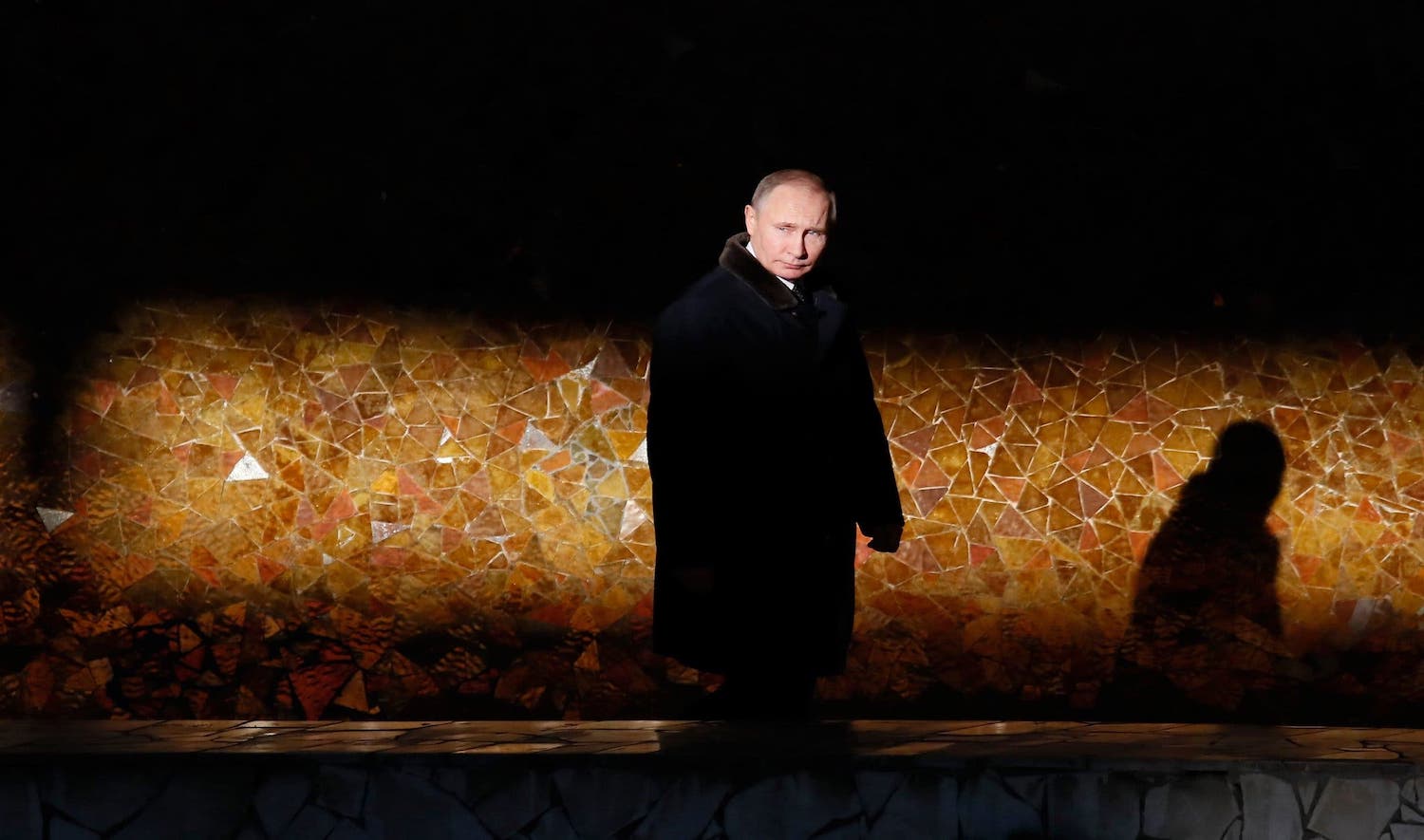PROFESSOR TOM PLATE WRITES — Suppose I stopped working so hard to stay on the sunny optimistic side of the street but instead defected to the dark side and always anticipating the worst? Consider the figure of Vladimir Putin.
Just try to stay optimistic after reading the depressing but richly informative book titled MR. PUTIN: OPERATIVE IN THE KREMLIN. More than 500 prodigious pages, published by the Brookings Institution years ago, catching the eye of high levels of the U.S. foreign-policy establishment, coming out of the well-cured minds of Fiona Hill and Clifford G. Gaddy, it offers nothing less than a sprawling portrait of evil.
Former Soviet intelligence operative Vladimir Putin comes across as a man so manifestly wired for no good that he’d make Niccolo Machiavelli seem the second coming of a clean-teen environmentalist. What a package: Nurtured in the caves of the KGB for 16-years. Canny blackmailer. Patient plotter of anti-west warfare, whether via assaults by traditional tank or tricky technology. Conniving for years to suck the independent life out of the Ukraine and into the big belly of Mother Russia. Master of political multiplicity: “Since 2000, Mr. Putin has been the ultimate international performance artist,” write Washington insiders Hill and Gaddy.
Hill, a widely respected U.S. National Security Council professional attached to the Russian and European portfolio – now re-planted at the Brookings Institution — surfaced dramatically in the 2019 House impeachment hearings of Donald Trump. She was a dazzling witness, from which star performance led me to her sprawling tome. This dark reading experience also led me to wonder whether a pessimist might make better sense the Ukraine’s fate than an optimist.
It turns out that I was not the only reader who found his way to that book and was repulsed by Putin. In a 2013 magazine interview with the journalist Douglass Brinkley, the then-Vice President Joseph Biden in a statesman-like way praised it, saying: “Insightful,” adding, teeing up the figure of Mr Putin: “He’s an interesting man.” When last week Biden declared he was convinced Russia would in time invade Ukraine, he startled the nation. But the American President, backed by updated intelligence assessments, and having done his homework by devouring the best book on Putin around, was not shooting from the lip.
Now switch from Europe to Asia: Maybe I should also take a long look at my relatively optimistic perspective on China. After all, its president just staged a major hug of concurrence with President Putin. Suppose I were to become a Fiona Hill-grade pessimist on China’s Xi? How exactly would that look? Why would I think that?
Perhaps I imagine that Xi, having abandoned the slowly-slowly approach to Taiwan integration, is now in a big hurry, and so uses the distraction of the ongoing Ukraine invasion by Russia to launch forces against Taiwan. Then let us Suppose the much-publicized social-credit scheme winds up as chillingly Orwellian as some people imagine it — especially in the demographic absorption of the Uighurs. Suppose that Beijing continues its path of talking a good game on climate change while still hookesd on coal for heating its 1.4 billion? And suppose there’s an accident or miscalculation leading to an eruption of conflict in the South China Sea? Or, how about it banking crisis punching the mainland economy in the gut? Or a mounting critical backlash in receptor countries against Belt and Road debt. Or a steadily increasing global wail over Xi’s abrasive ‘Wolf Warrior Diplomacy’?
In the matter of Russia’s stance over Ukraine, we must note the Chinese government has been careful not to contradict its vaunted foreign policy of ‘non-interference’ in the internal affairs of other nations with an overt endorsement of invasion. And that is a good thing. At the same time, anyone could make the point that, geopolitically, the Ukraine is to Russia (more or less) as North Korea is to China. Buffer countries make the nicest neighbors, don’t they? Look at the U.S.: Over Central America, it has insisted on suzerainty consistently since the 19th century. Under the USSR, Moscow had the comfort of Eastern Europe standing in the way. So why shouldn’t Beijing have big-power sway in the South China Sea?
Notably, the utopian German philosopher Ernst Bloch (1885-1977) was famous for insisting that humanity must live by “the principle of hope” if we are to remain a human. But as so many negatives pile up these days, only a true optimist can envision a hopeful course. That’s precisely why I must, against mounting evidence, stick with optimism, especially for Asia. The alternative is too depressing for words, even as optimism seems such an insane over-reach these days.
LMU Clinical Professor of Asian and Pacific Studies is vice president of the Pacific Century Institute, a non-profit dedicated to peace building between Asia and America. An earlier version of this column appeared in the South China Morning Post, the professor’s regular platform.


Deadbeat US is the prime global sponsor of terrorism and wars.
The US keeps provoking Russia while playing the good guy that’s just defending someone. They used it in Serbia, they used it in Syria, they used it in Libya and of course in Vietnam.
The truth is they want Russia to respond so they can say we told you so and the fake media will swallow the lie again.
The U.S. policy of confrontation and tensions is all about finding a suitable cover for the American sabotaging of Europe’s energy trade with Russia.
FROM SAKER